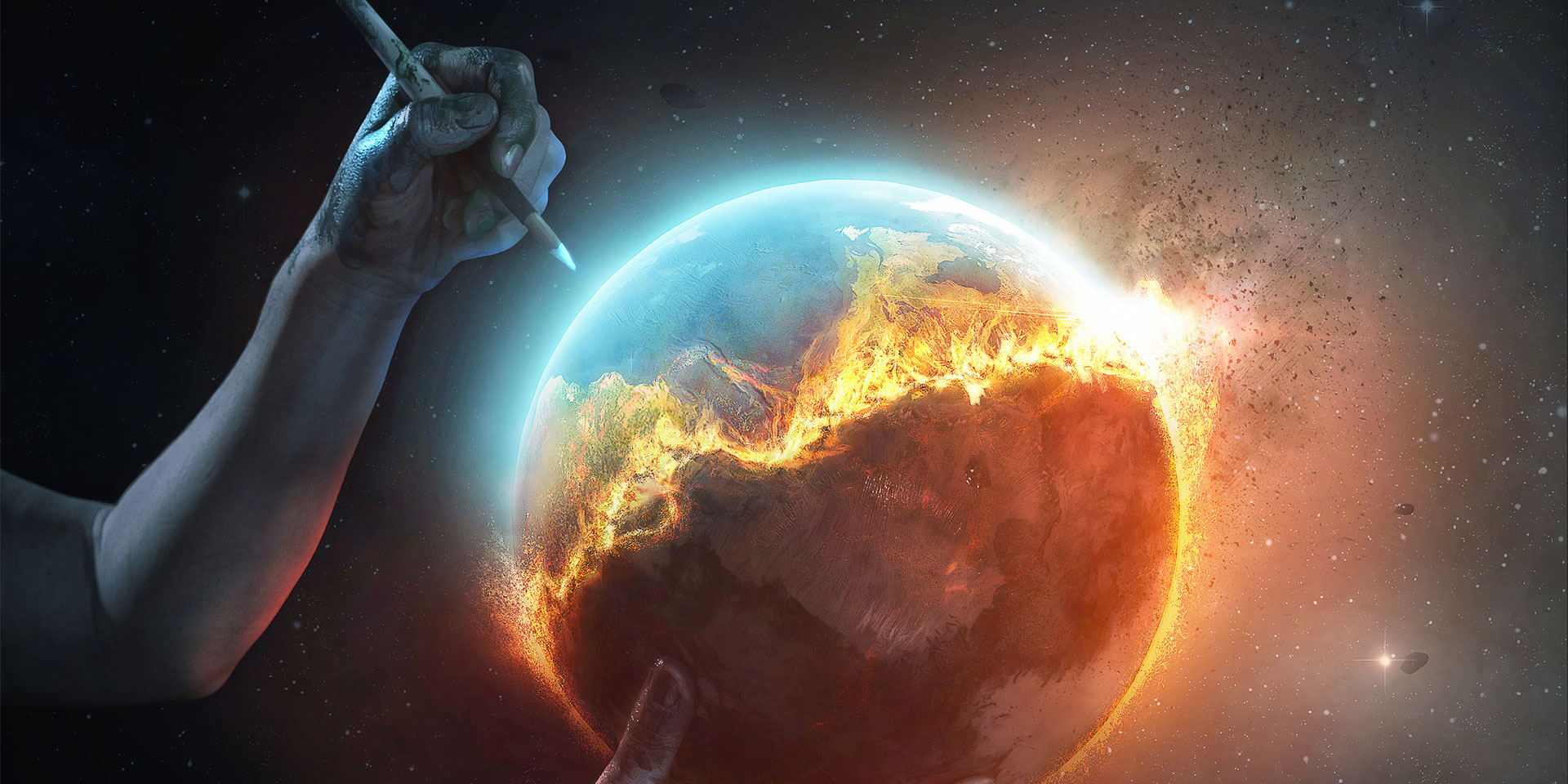How important is the second coming of Jesus Christ in traditional Christianity?
The second coming of the Son of God was eagerly and hopefully awaited by the Christians in the early church[1]. The persistent promotion of the heavenly Kingdom by Jesus’ followers and, indirectly, the announcement of the overthrow of any earthly power, increased the zeal of the persecutors. Between being victims and prophets of the fall of the Empire[2], Christians were a voice that constantly announced Christ’s imminent return.
Presently, although Eastern Orthodox Christians share in the faith in the second coming of Christ, their concern for the second coming is rather low. The return of Christ is for many a vague, temporally indefinite event. Whenever a major calamity takes place, people think of the end of the world, but they have separated this event from the return of Jesus. There are many secular apocalypses (without the return of Christ) in the minds of contemporaries. The sense of anticipation for Jesus’ return, the most fascinating future event described in the Bible, has been lost.
The orthodox perspective on the second coming
The Eastern Orthodox Church professes faith in the return of our Lord Jesus Christ. The second coming will be real and universally visible. The event will be preceded by signs—previous and co-occurring—but, according to Scripture, the exact date when it will take place cannot be specified (Matthew 24:36; Mark 13:32; Acts 1:7). The presence of Jesus in all His glory will precipitate the resurrection of the dead and the transformation of the bodies of the living (restoring the connection between body and soul and changing the nature of people[3]), as well as universal judgment and “life everlasting” (creation will step into eternity).
Anthropology and its impact on the understanding of the second coming
Orthodox anthropology directly influences the way eschatological events and states are imagined and defined. Two things are worth noting: the dualistic perspective (body-soul) of human nature and the overestimated moral condition of man.
The fact that individuals are seen as beings composed of body and soul compels the orthodox Christian imaginary to build a post-mortem universe in which to place the soul stripped from the body. The optimism about humankind’s ability to do deeds that matter for salvation urges and conditions us to depend on these actions for salvation.
Accounting for facts
The Bible states that we are saved through faith, by grace (Ephesians 2:8), but evaluated according to our deeds (Matthew 25:34-46) because without deeds, faith is useless (James 2:20). Deeds are a consequence of salvation.
In Orthodoxy, deeds are necessary (mandatory) for salvation.[4] Conditioning salvation by deeds is dangerous, because it relies on the balance of human nature. When mankind is convinced that they can do good deeds in order to be saved, the deeds will create a feeling of sufficiency and will excuse their sinful inertia. In other words, humans will be late in their earthly nature and will not experience total dependence on Christ.
Orthodox theology is involuntarily driven to semi-Pelagianism by two ideas: a) the incarnation of the Son of God poured something divine into the fallen human nature and rehabilitated it so that it has the capacity to autonomously do good; b) baptism automatically grants rebirth (the institutionally reborn individual is able to craft their salvation by amassing deeds).
As such, by Eastern Orthodox standards, the lack of good deeds is considered bad will and not weakness of nature, hence the guilt and stress of salvation.
The semi-pelagic nuance is caused by the need to prove that sanctity is possible. Without spiritual autonomy, the saint would have no merits, therefore they could not mediate and they would not have soteriological functionality.
In this context, Christians must perform good deeds in order to attain the amount necessary for salvation. The Eastern Orthodox teaching of the heavenly “tax collection” demonstrates that, from an Orthodox perspective, salvation is more related to having than being.
Predilection for private judgment
The importance of deeds leads to the need to evaluate them—hence the concern about God’s judgment. The Eastern Orthodox Church affirms the existence of two judgments: the private judgment (after death) and the universal judgment (at the second coming of Christ). The difference between the two judgments is that the latter will analyse the consequences of all the deeds, in order to offer full reward or total punishment[5]. Between the two events, the church can change or improve the fate of the unfortunate (through liturgies and memorials).
The Orthodox Church urges its faithful to prepare mainly for the encounter with Christ at the private judgment. Good feedback at this judgment will guarantee success in the second. Orthodoxy urges a thorough preparation for the immediate encounter with Christ the Judge and diminishes the interest in the second coming. The stakes of the private trial are huge. On that occasion, the church intervenes through its services and at that point, the merits and prayers of the saints and of the Mother of God are added, in order to compensate for the inevitable lack of good deeds of the individual.
In other words, the major stress concerning the private judgment overshadows the outlook on Christ’s return.
The millennium before the second coming
Another reason the Orthodox are emotionally detached from the second coming of the Son of God is the way they understand the millennium. The Holy Scriptures speak of a thousand-year kingdom that Jesus Christ will establish with the resurrected from the first resurrection. After the thousand years, the damned will be resurrected as well and, together with the evil angels, will face the holy presence of God, which they will not survive, because of the sinful state in which they persisted (Revelation 20:1-10).
The Orthodox Church does not agree with the literal interpretation of this text and considers baptism to be the first resurrection, and the millennium, the kingdom of grace founded by Christ on earth, which will last until His second coming[6], “…a very long and indeterminate age”[7].
This perspective is the result of applying the theology of deeds necessary for salvation at church level, and appeared after the gaining of religious freedom (313 AD).
The new church, approved and encouraged by the state, changed its discourse: the state would not be destroyed shortly after the return of Jesus, but would be transformed, under the influence of the church, until it becomes the Kingdom of Christ. The fact that the state is slow to become the prophesied Kingdom reveals that the work of the church has not been completed and the “dawns enlightened by the radiance of God’s throne” are still far away.
N.I. Nicolaescu, a Romanian theologian from the communist period, reassures us about the second coming of Christ: the parousia cannot be approaching. The imminence of Jesus’ return seems absurd to him, because it is contradicted by countless unfulfilled predictions, and by the scientific and political evolution of mankind, which has not yet reached the potential offered by God (Genesis 1:28). Church tradition and the Holy Scriptures do not offer arguments for looking “with skepticism at the hope of scientists that mankind will eventually find its way to ensure unlimited multilateral development.” Also, the church is committed to the creation of the new heaven and earth, “as much as it can, or at least to approach the threshold of their realization, in different ways”[8].
The Orthodox Church conditions the return of Christ to social deeds. The world is capable of creating a good society (pelagic reflex at community level).
Paradoxically, another Romanian theologian, who was persecuted by the communists, Dumitru Stăniloae, has a grasp similar to that of N.I. Nicolaescu: “The kingdom of God will seemingly come after creation will have given the whole world structures that correspond to that kingdom of justice, peace and equality and, at least for some, the most advanced experience of these relations in God. Eschatological perfection will come after mankind will have endeavoured to do all it can in order to approach it. When that perfection appears, it will understand that this is exactly what it needed, that is, it will be prepared to be received with understanding.”[9]
A low appetite for Revelation
In the East, the paternity of John over the Apocalypse was denied by Dionysius of Alexandria, Papias of Hierapolis, Eusebius of Caesarea, Cyril of Jerusalem, Gregory of Nazianzus, and by John Chrysostom. He was also denied recognition of authority by church fathers such as participants in the Synod of Laodicea (363), Jeronimus, and by the authors of the Eastern canonical lists (Revelation is not included in the Peshitta, the Syriac Bible). Apprehension towards this biblical book is also observed in the Orthodox religion: Revelation is the only book in the Holy Scriptures that is not used in divine services.
Moreover, the Apocalypse, through the gift of prophecy, represented a fear for the Orthodox interpreters, who, because they were condemning Montanism, kept away from prophetic texts and manifestations.
There is also a cultural difficulty in understanding the Apocalypse. The Orthodox are tributary to the Hellenistic environment and are alienated from the Old Testament Jewish context, which provides the key to understanding this book.
Above all, the fear of making mistakes, of committing heresies (the most terrible sin) inhibited the Orthodox theologians from giving due importance to the study of the book that begins and ends with the statement of our Lord Jesus Christ: “Yes, I am coming soon!” (Revelation 1:7; 22:20)
Where are we standing?
The absence of the message of the imminent return of Christ deprives the Orthodox Church of prophecy, cuts it off from the essence of spirituality and diminishes its impact on society. But what is more important, from the Bible’s point of view, is that, because of their disinterest, many Christians will be caught unprepared for the return of Christ. The lack of a desire for Jesus to return soon is a worrying symptom of a lack of relationship with Him, and the news of an inevitable disaster.



















